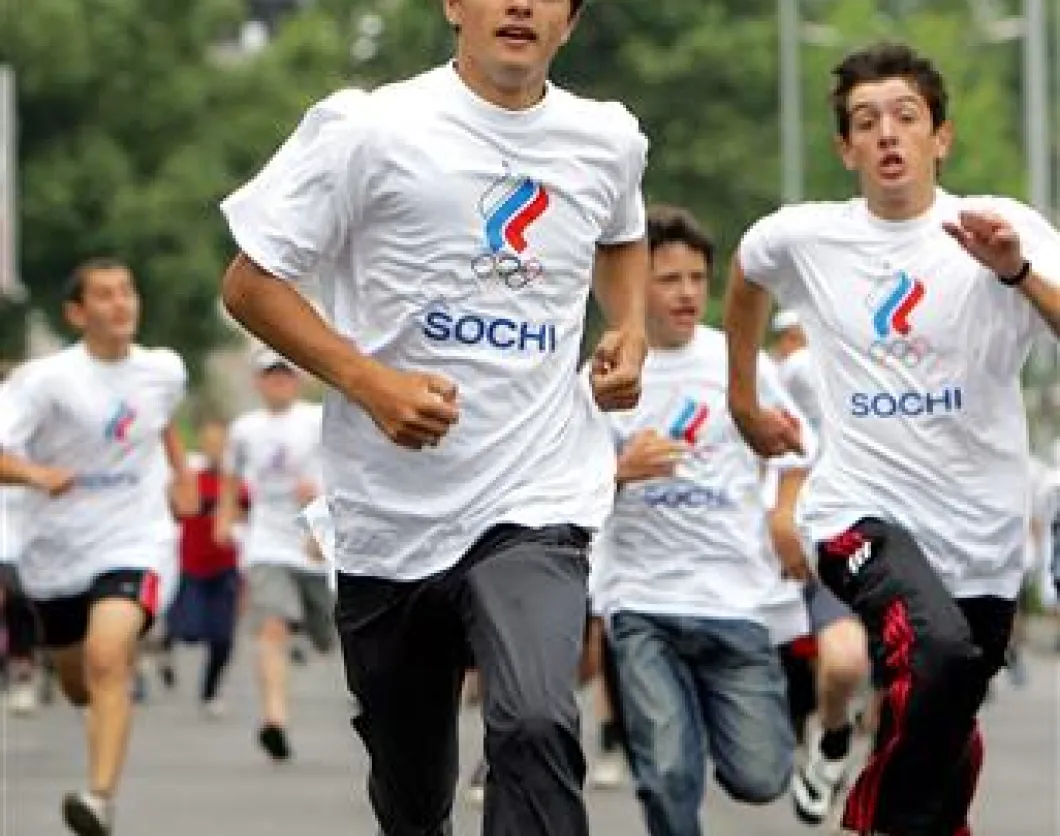The funding for the 2014 Winter Olympic Games in Sochi, Russia, is not according to the country’s Prime Minister Vladimir Putin jeopardized by the current world economic crisis.
“The financial difficulties we are seeing in the world today have had an impact on our country, but everything relating to the Olympic project is safeguarded by the budget, and its financing is guaranteed,” Putin said. “None of the Russian or foreign investors have abandoned their initial plans,” he added.
The construction of the Olympic venues is expected to be completed by the end of 2012, enabling assessment during smaller sporting events prior to the Winter Olympics. Following the decision to hold the 2014 Winter Olympic Games at the Russian Black Sea resort city, large parts of it have turned into a giant construction site. Although visitors can’t yet see new stadiums and ski runs, the city itself is changing rapidly. Anyone who knew Sochi before 2007 would struggle to recognize the city now.
Costly Construction
Over $12 billion will be spent to get the Black Sea resort geared up for the Winter Games – that's about eight times what Canada’s Vancouver will outlay for its upcoming 2010 Olympics. Vladimir Putin assured the International Olympic Committee (IOC) that its members will be able to monitor developments using the latest information technology.
“We’ve developed special software for tracking each object’s progress. It will also integrate all work done on the project. Thus, we and the International Olympic Committee, will get a non-stop, daily – and even hourly – control over everything happening as part of the project, and of the individual projects as well,” Putin said. The IOC plans to work closely with the organizers. Its members say every day is now a deadline.
For decades Sochi has been a favorite holiday destination for millions of tourists. The city’s Mayor, Vladimir Afanasenkov, says that the Olympics won’t change it even with its building activity. “People are afraid that the construction works will disturb their holiday. The design and construction works are located in a small sector of the city. The beach is 145 km long, but the construction, which is in the Imerety valley, is only 2 km long.”
The plan is for most of the Olympic venues to be built in the Imereti valley and higher in the mountains – in Krasnaya Polyana, far away from Sochi’s densely populated city centre, as well as from the popular Black Sea beaches.
Tourism & Plans
Sochi is a city with more then 400,000 inhabitants representing over 100 nationalities. Over 84% of the citizens supported their city’s bid for the 2014 Olympics. Over four million tourists visit Sochi annually and with over 250 spa facilities in the area, health and leisure tourism are the city’s leading sources of economy.
The officials plan to diversify the city’s economy from just summer tourism to include winter sports and business tourism. The area’s visitor base is expected to increase from the current four million to six million, making efficient year-round use of the infrastructure. The winter tourism season in Sochi currently attracts considerably fewer tourists than in the summer season (a 90% reduction).
The city announced that it will offer more than 22.000 new hotel rooms of 3-star to 5-star by 2014. The wider Krasnaya Polyana region should see 3.000 new hotel rooms. Also, the transport infrastructure is to undergo considerable improvements. The airport should double its current capacity to 2,500 passengers per hour by 2014. Sochi’s Krasnaya Polyana region’s road network should be also upgraded and 59 km of highways to all the venues are planned.
It is estimated that the Sochi 2014 Organizing Committee can generate 485 million USD in domestic marketing revenues for the Olympic and Paralympic Winter Games, including 300 million USD from local sponsors and 125 million USD from ticket sales.









